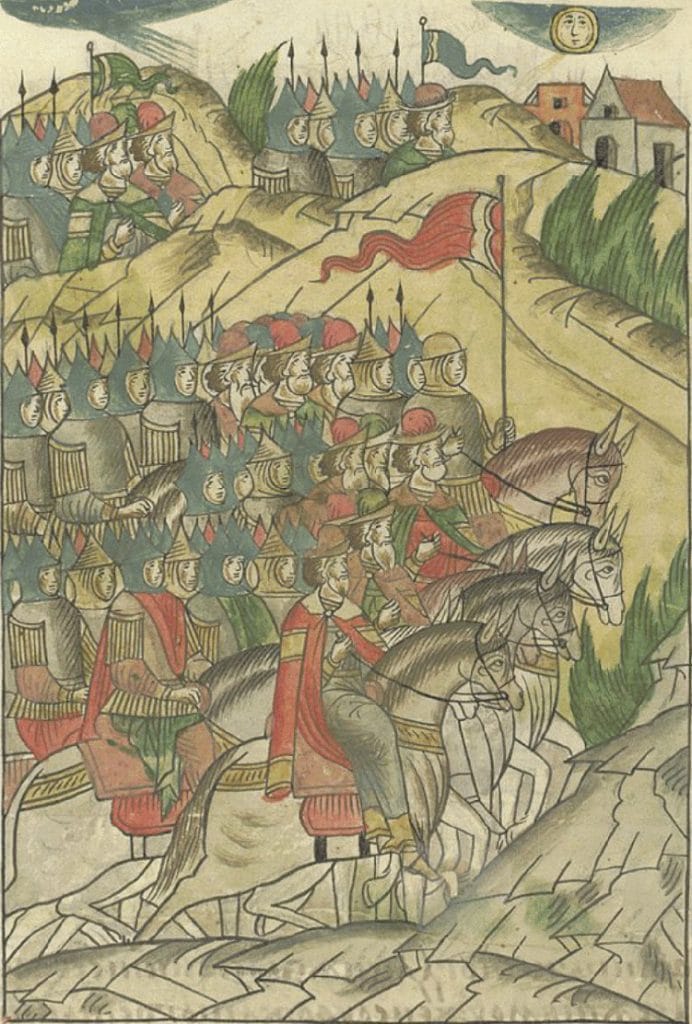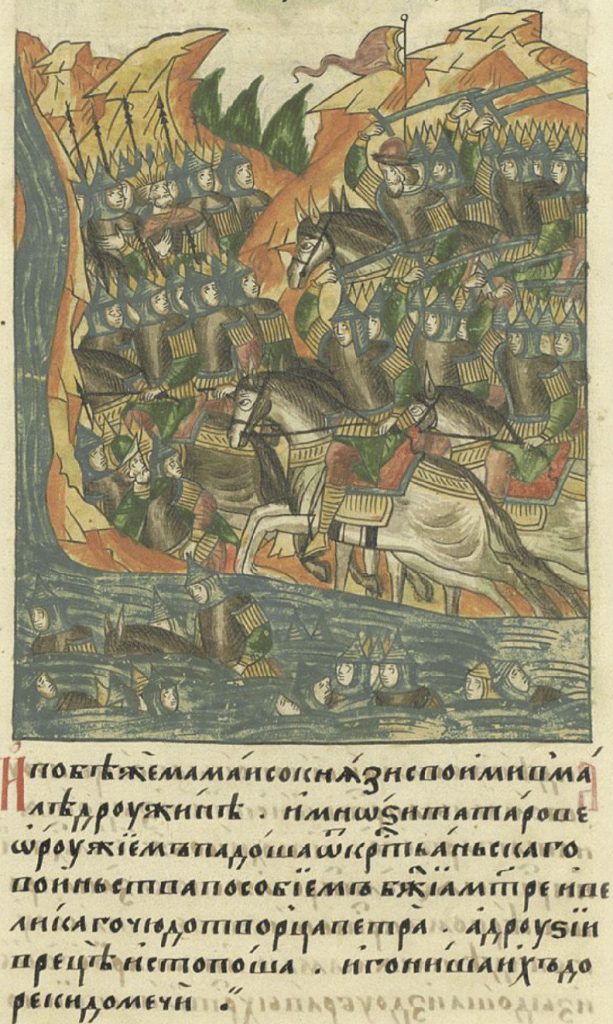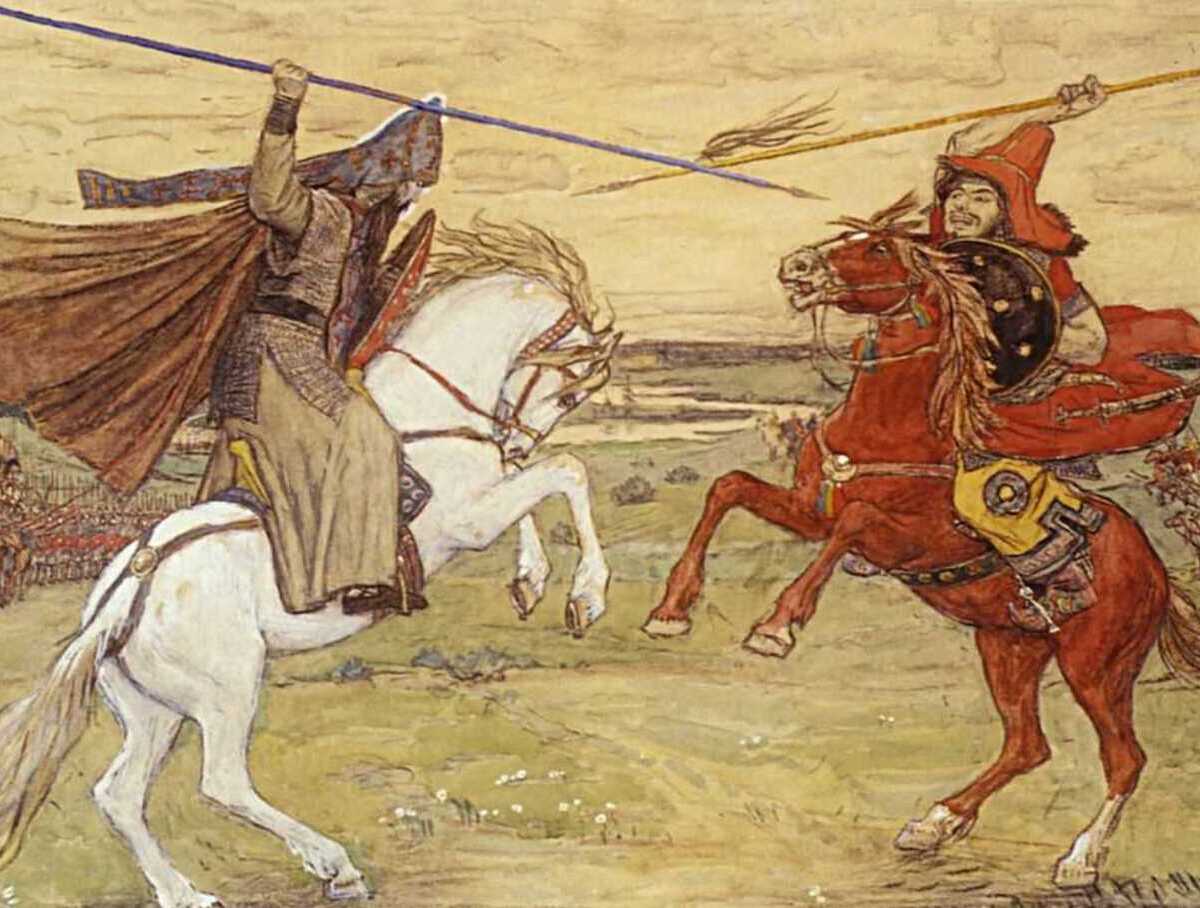On July 18, Patriarch Kirill of Moscow and All Rus' said that “there was no visible winner” on the Kulikovo field. He had previously said that the battle ended in a “draw.” We decided to check if this is true.
About the Battle of Kulikovo Patriarch Kirill spoke July 18 in a sermon on the day of the 600th anniversary of the discovery of the relics of St. Sergius of Radonezh. According to him, “after the battle on the Kulikovo field there seemed to be no visible winner, but for Rus', which was in many ways inferior to the enemy, this was a real victory.” In September 2021, the Primate of the Russian Orthodox Church will already claimed: “It cannot be said that Dmitry Donskoy completely defeated the Tatar-Mongols, this did not happen. But the battle led to a draw." Then many assumedthat the patriarch misspoke and confused the Battle of Kulikovo with Borodino, but less than a year later he repeated his thesis almost word for word.
Battle of Kulikovo happened in September 1380, south of the confluence of the Nepryadva River with the Don. The united Russian army under the command of the Grand Duke of Moscow Dmitry Ivanovich and Prince of Serpukhov Vladimir Andreevich was opposed by the so-called Mamaev Horde - the army beklarbek Mamai, a rebellious official of the Golden Horde. The formal reason for the clash was the failure of the Moscow prince to pay regular tribute.
The question of the winner in this battle was never in doubt, explains Igor Danilevsky, Doctor of Historical Sciences, specialist in the history of Ancient Rus', for “Verified”. “There are two chronicles about the Battle of Kulikovo, brief And lengthy; There is "Zadonshchina"; there is a later one "The Legend of Mamaev's Massacre"And nowhere is there any mention that victory was not won. Dmitry won, Mamai fled, Dmitry Ivanovich’s troops pursued him to the Mechi River," says Danilevsky.
Stories about the Battle of Kulikovo differ from each other stylistically and in the description of individual details. But the outcome of the battle remained unchanged. In a short chronicle story, which historians date back to 1408, he stated as follows: “They fought all day, and countless dead fell on both sides. And God helped Grand Duke Dmitry Ivanovich, and Mamaev’s filthy regiments ran, and ours followed them, and beat and flogged the filthy ones without mercy.” In a lengthy chronicle story interpretation also leaves no doubt about the victory of the Russian army: “The Christians, seeing that the Tatars and Mamai were running, chased after them, beating and chopping up the filthy ones without mercy, for God, with invisible power, terrified the Tatar regiments, and, defeated, they fled. And in this pursuit, some Tatars fell under the arms of Christians, while others drowned in the river. And they drove them to the river as far as Mechi, and there they killed countless numbers of those fleeing.”

"Zadonshchina", which has come down to us in the lists of the 16th-17th centuries, is more lyrical describes defeat of Mamai’s army: “Then the Great Prince Dmitry Ivanovich and his brother, Prince Vladimir Andreevich, turned the filthy regiments back and began to beat them and flog them mercilessly, bringing melancholy to them. And their princes fell from their horses, and the fields were strewn with Tatar corpses and the rivers flowed with their blood. Here the filthy ones scattered in confusion and ran along unbeaten roads into the Lukomorye, gnashing their teeth and tearing their faces.” Finally, in “The Tale of the Massacre of Mamai,” the late but most detailed account of the events on the Kulikovo Field, the flight of Mamai looks so: “And Mamai, seeing new warriors who, like fierce beasts, were galloping and tearing apart enemies like a flock of sheep, said to his friends: “Let’s run, because we can’t wait for anything good, so at least we’ll carry off our own heads!”

“With the outcome of the battle, everything is clear, only one thing is ambiguous - the role of Dmitry Ivanovich in the Battle of Kulikovo. We don’t like to remember this, but, apparently, it was close to the truth: Dmitry Ivanovich literally disappeared in the first minutes of the battle. In “The Tale of the Massacre of Mamayev,” the winner turns out to be Vladimir Andreevich Serpukhovskoy, Dmitry Ivanovich’s cousin,” says Igor Danilevsky. According to him, this is also confirmed by the fact that contemporaries called Vladimir Andreevich “Donskoy” - he was “Brave” or “Donskoy”; and Dmitry Ivanovich is only “Moskovsky”.
After the battle, the defeated Mamai fled to the Crimea, and already there, in the city of Kafa (modern Feodosia), he was killed - either by the Genoese, or by people sent by Khan Tokhtamysh, who turned out to be the main “beneficiary” of the results of the battle. The defeat of Mamai, Tokhtamysh's main rival for power, allowed the latter to finally eliminate his competitor. “When Dmitry Ivanovich returned safely to Moscow, Tokhtamysh sent a message about the victory over the common enemy and about the murder of Mamai. After which Dmitry Ivanovich and other princes sent Tokhtamysh gifts and congratulations on his accession to the rightful throne,” recalls Igor Danilevsky.
Thus, the winning side in the Battle of Kulikovo itself is beyond doubt: this is the Russian army of the Grand Duke of Moscow Dmitry Ivanovich and Vladimir Serpukhovsky, reinforced by detachments of the Lithuanian princes Dmitry and Andrei Olgerdovich. The battle ended with the complete defeat of the enemy and his panicked flight.
Not true
Read on topic:
- A. A. Gorsky. Moscow and Horde.
- I. N. Danilevsky. How Sergius of Radonezh became the hero of the Battle of Kulikovo.
If you find a spelling or grammatical error, please let us know by highlighting the error text and clicking Ctrl+Enter.






